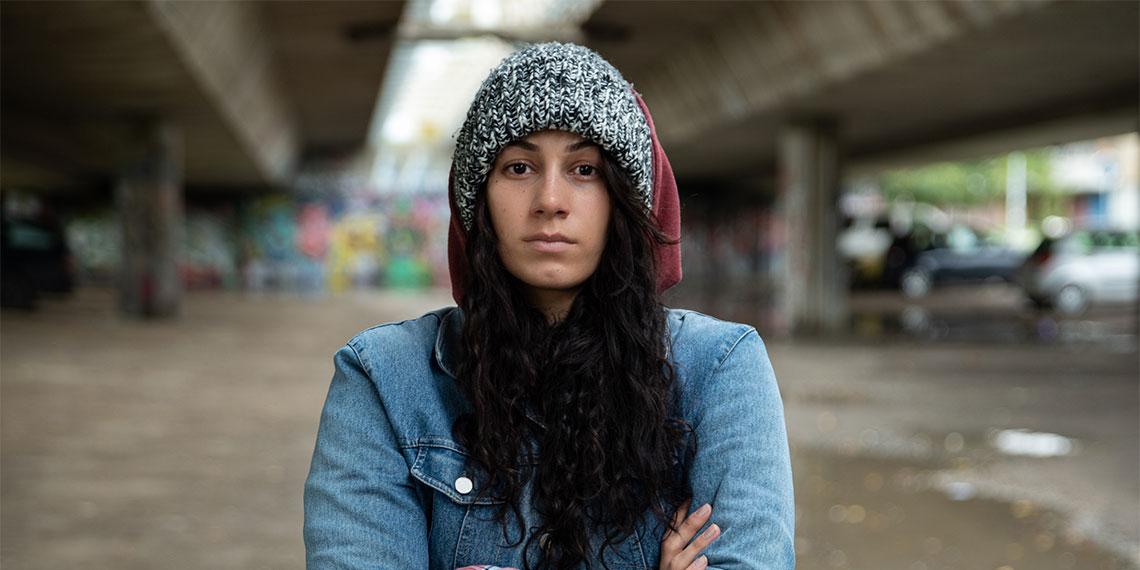You are here
Salvation Army State of the Nation 2023 report provides snapshot of social realities

The escalating cost of living, increased household debt, lack of affordable housing, worsening of education outcomes and increase in young people reporting psychological distress are among some of the challenges facing New Zealanders identified in a new Salvation Army report.
The sixteenth annual State of the Nation report, titled ‘Costs … of Living / Nga Rourou Whakaiti’, pulls together existing data to provide an annual snapshot of our social progress as a nation.
“Despite rising incomes and low unemployment that are lifting incomes for many, the report acknowledges the very real pressures that are increasingly and significantly affecting people’s lives as inflation begins to bite and people struggle to feed their whānau, to find work and secure warm, dry affordable accommodation,” says Lt-Colonel Ian Hutson, director of The Salvation Army’s Social Policy and Parliamentary Unit.
“While inflation is a thief from everyone’s pocket, the lowest income households are among the hardest hit.
“The report theme also hints at a broader collective set of costs that a society needs to take into account that support people to live fulfilled lives and to avoid the very real social and economic costs of inequality.”
The six sections of the report traverse Children and Youth, Work and Incomes, Housing, Crime and Punishment, Social Hazards and Māori Wellbeing.
“In an election year, it is our hope to see political leadership that will take action to address social disparities and support our communities to meet the ‘costs of living’. This includes an emphasis on enabling legislation and effective policy in housing and stronger regulation around gambling-related harm.”
Key findings in the report:
- Children and Youth While the decline in levels of child poverty and hardship up to mid-2021 (the latest available data) is a genuine achievement, child poverty rates are still too high. Māori and Pacific children were particularly affected. Almost one in four Pacific children (24 percent) were living in material hardship in 2021. Covid-19 restrictions during the second half of 2021 and ongoing cost of living increases during 2022 added to pressures on lower income families. The number of children under 15 years who were victims of serious assaults resulting in injury is more than 40 percent higher than five years ago, and there has been a sharp increase in the proportion of young people aged 15 to 24 years reporting high levels of psychological distress. Education outcomes have worsened, and school attendance rates have declined.
- Work and Incomes Record high employment and workforce participation, along with increased welfare benefit levels and a higher minimum wage have all helped lift incomes. On the downside, rising inflation has eroded real incomes. Youth unemployment remains too high while Māori and Pacific workers continue to experience much higher unemployment rates than other ethnic groups. The total government spending on hardship grants increased in 2022 and the year ended with signs from foodbanks of increasing need.
- Housing On the upside, the number of people on the social Housing Register declined for at least two quarters of 2022—the first decreases in seven years—consents for new dwellings continue to grow, and active tenancy bonds have gradually increased, indicating that more households have found accommodation. The rental market remains tight however, and rents have steadily increased in much of the country. Worryingly, average household debt—driven by housing debt along with consumer and credit card debt—has increased to its highest level in more than 15 years.
- Crime and Punishment The number of victims and reports of victimisations reported to police has increased in the past year. By contrast, the number of alleged offenders and proceedings against them by police declined significantly in 2022. The backlog in our court system created by Covid-19 restrictions and complex cases coming through the courts has increased jury trials and has severely impacted the courts’ ability to administer justice; this has contributed to the highest proportion ever of people on remand at 41 percent.
- Social Hazards Encouraging results include that hazardous drinking behaviours have declined in general; convictions for cannabis and methamphetamine have declined; and fewer people are withdrawing their KiwiSaver savings for hardship reasons. More worrying trends from our perspective include that more RTD spirit-based drinks (marketed to young people) are being drunk; hazardous drinking remains a challenge for Māori; and the detection of methamphetamine in wastewater has increased in the last year. In addition, all forms of gambling we monitor have surged in the last year, with increasing losses on pokie machines.
- Māori Wellbeing Māori are seeing improvements in some areas, with positives including a sharp reduction in the infant mortality rate for Māori, which is now close to parity with the non-Māori rate; a reduction in the large gap between offending rates for rangatahi Māori and non-Māori; and an increase in the proportion of Māori who report being able to speak more than a few words and phrases in te reo. On the downside, nearly one in five rangatahi Māori aged 15 to 24 years were not in employment, education or training, more than twice the non-Māori rate. Alcohol consumption is at hazardous levels for one third of Māori.
The full report can be found at: https://www.salvationarmy.org.nz/sotn2023